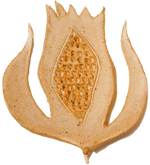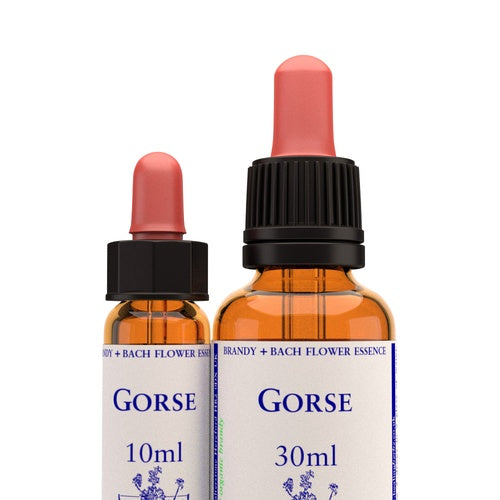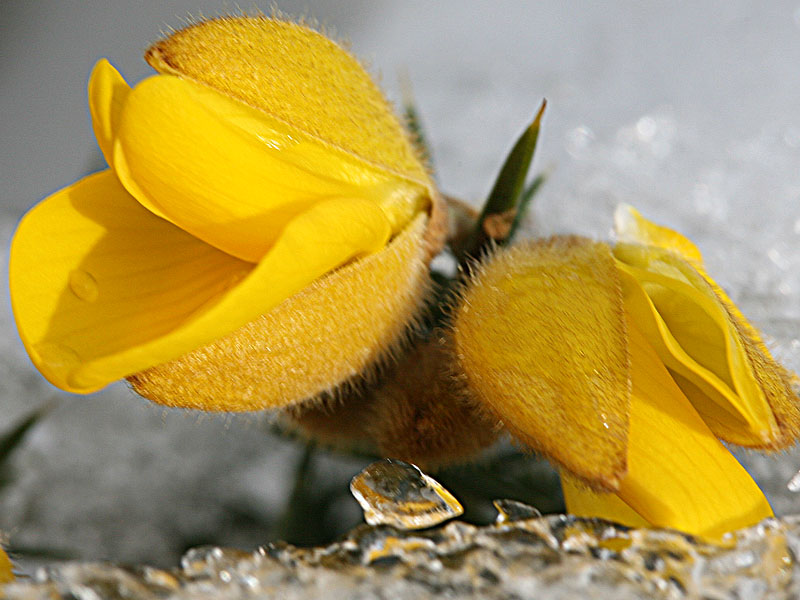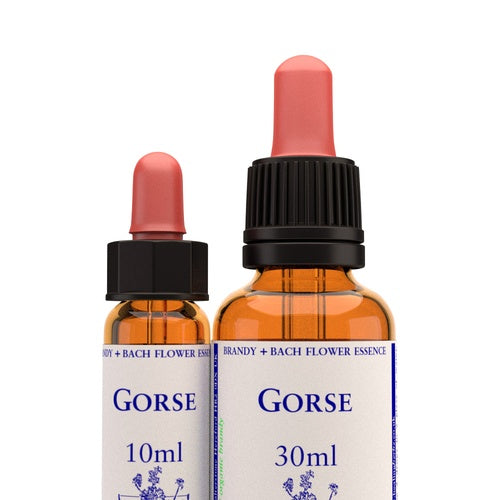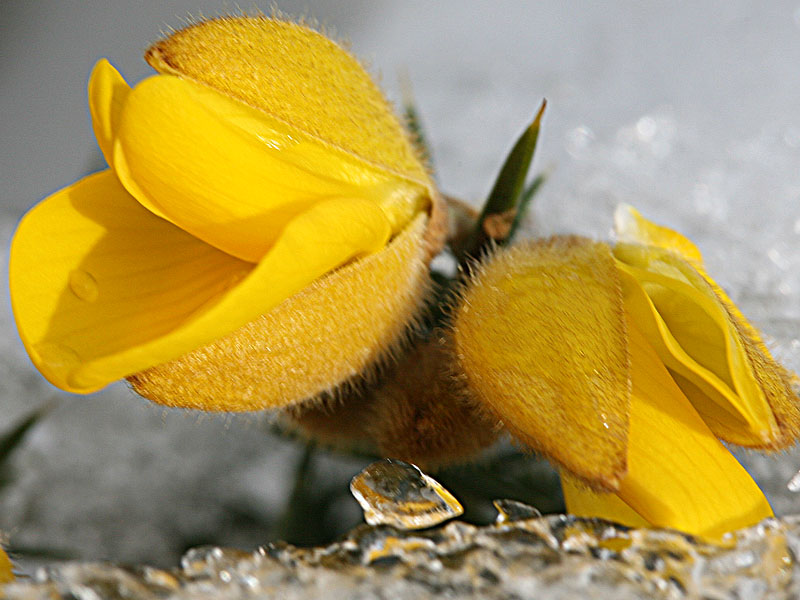Gorse
Gorse
£4.80
Gorse details
Latin Name: Ulex europaeus
Group:Seven helpers
Emotional Group: Uncertainty
Chronic condition: Hopelessness
Method: Sun
Indication
Very great hopelessness, they have given up belief that more can be done for them. Under persuasion or to please others they may try different treatments, at the same time assuring those around that there is so little hope of relief. [Bach: Twelve Healers and Other Remedies 1936]
Affirmation
Now let us think about those who have been ill for some time, or even a long time. There is again every reason to be hopeful of benefit, either improvement or recovery. Never let anyone give up hope of getting well. [Bach]
Chronic Conditions
Gorse is for those who have suffered much and whose courage, as it were, has failed; who have lost the heart to try any more. They say they have been told that nothing can be done, that they are past all medical help, and even if they do start treatment they say that they have been ill for so many months or years as the case may be, that they will not expect improvement for a long time. People who need Gorse are generally sallow and rather darkish in complexion, often with dark lines beneath the eyes. They look as though they needed more sunshine in their lives to drive away the clouds. [Bach]
Habitat
General
Gorse grows on most soils but will avoid chalk and lime, preferring the slight acidity of moorlands and dry sandy commons. In summer the ripe seeds explode and so a thick clump of Gorse will slowly spread and dominate an area. It grows mainly on the western fringe of Europe and can be killed by severe frosts.
Britain
Gorse can be found throughout Britain. It is frequently planted in western Britain and in Ireland.
Gorse - Form and Function
In his description for Gorse Bach says nothing of the plant and looks only at the state of mind, adding some notes on the physical appearance of such people (sallow complexion, dark rings around their eyes). Nevertheless, the plant succinctly describes the remedy, reflecting exactly the gesture. To raise the energy of the Gorse state, to prick the person back towards life, we need a powerful plant with a ferocious will to live; something brilliant, resilient, tough and tenacious, a flower that is sensitive and delicate yet strong and ablaze with light. Bach left no clue as to how he made his choice (except the ‘message’ received on the bank of the river Thames at Marlow). But if we examine the Gorse plant and its conditions for living we can see a precise correspondence to the message of hopelessness and renewal.
Gorse grows on the open hillside, on wasteland, on heaths and commons. We may see the occasional single plant but it generally grows in massed clumps, often covering acres of neglected pasture. It is the collective strength of the species that is needed to lift the energy of the Gorse state; it lacks the individuality of the earlier type remedies. Look at a bank of Gorse and you will find it hard to see individuals either in the stems and branches or among the flowers. As one writer observed, it is a landscape plant. Its golden-yellow flowers, offset by the vivid green stems, blaze with colour, painting the hillside. As with Heather, another of the Helpers, there is a sense that the Gorse bushes draw down the light and burn like flames upon the land.
Bach’s Gorse is Ulex europaeus, a woody shrub grows to about 2 metres. It flowers over a long period from November to June. It has a smaller counterpart, Ulex gallii (which is not Bach’s Gorse), that flowers in the second part of the year. Together they form an annual cycle for this type of plant that flowers throughout the year. Hence the oft quoted ‘when Gorse is out of flower, then kissing’s out of fashion’. It points up an interesting link between the Gorse state of desolation and the life-affirming act of making love.
£4.25/10ml
Ask us anything
We are happy to answer any questions you may have about our product.
You may also like
Subscribe to our newsletter
Promotions, new products and sales. Directly to your inbox.
Quick links
Contacts
01947 606565
totallynaturalskincare@outlook.com
152 Church street Whitby North Yorkshire YO22 4BH
